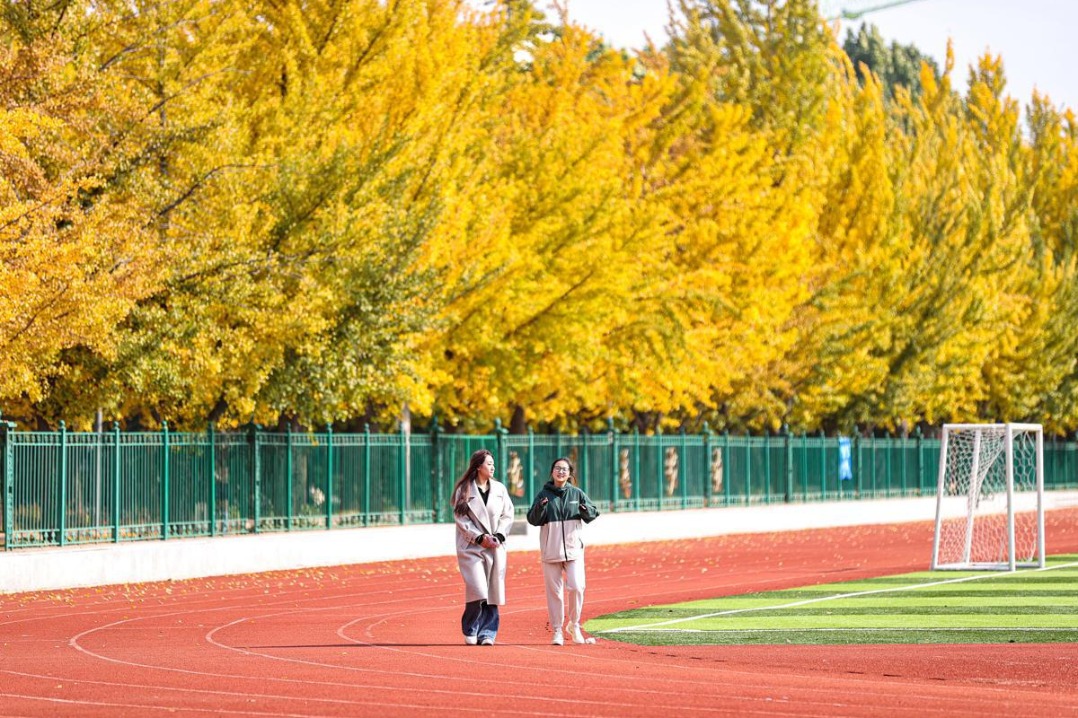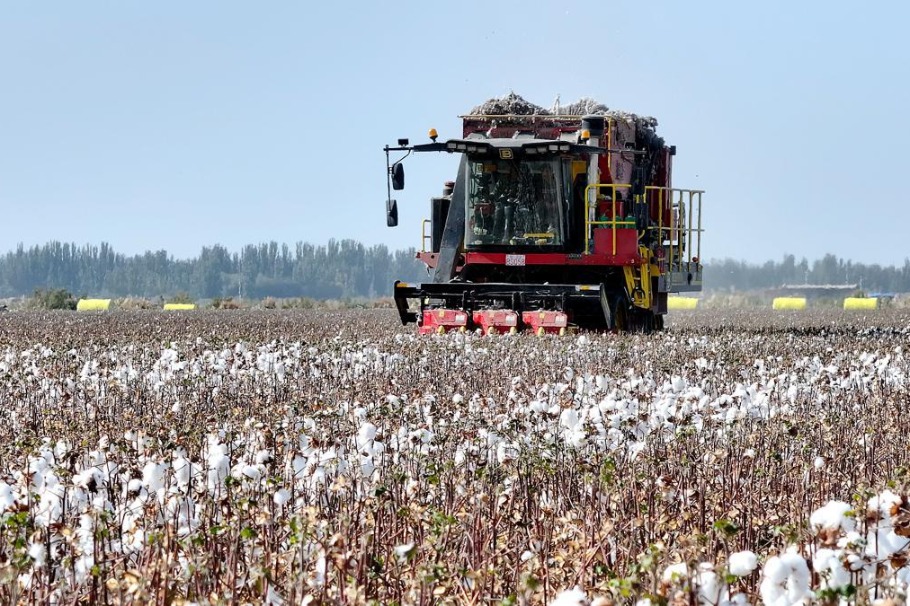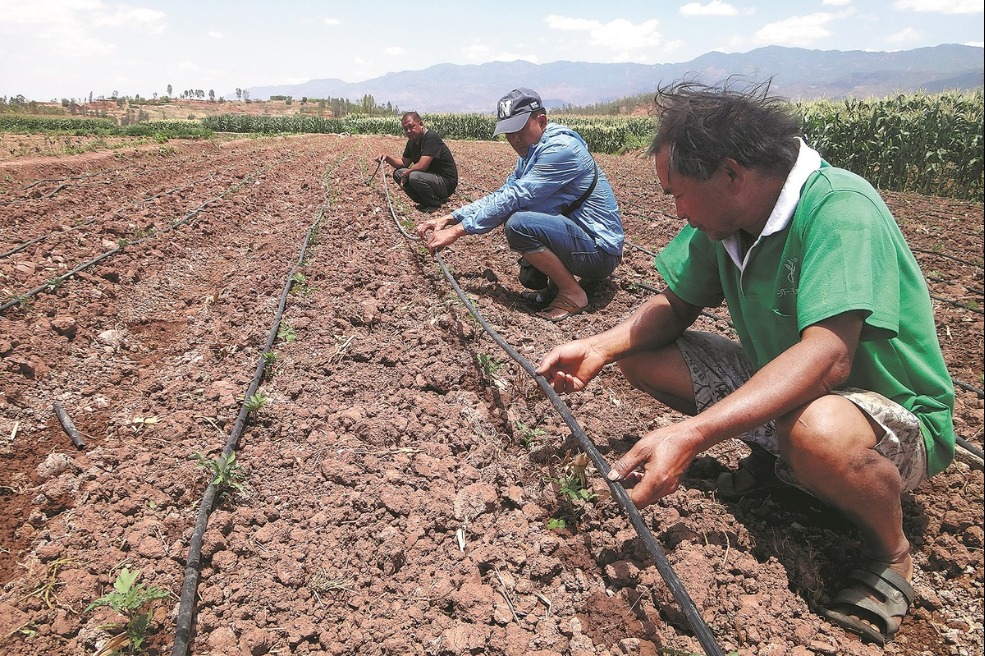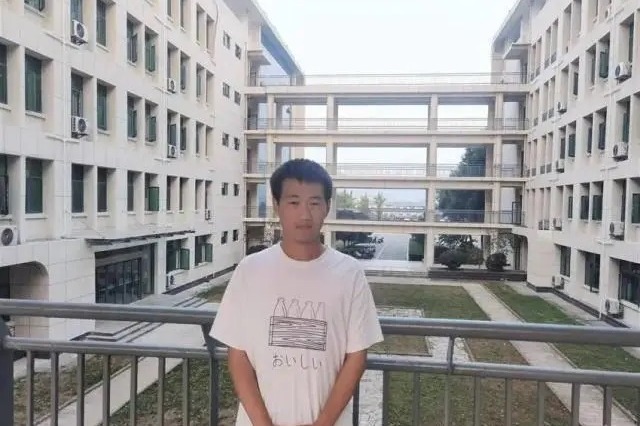Full commitment to sustain improved lives

Planting success
Karst landscapes make up about 40 percent of Huanjiang, which faces significant drought, flood and soil erosion risks because of its topography. The forage production to build a sustainable cattle industry encouraged by Zeng Fuping and his team has since helped to stem those risks – the green project covers about 12,000 hectares and 132,000 heads of cattle. The county records an average annual rate of 30,000 cattle added to the project, with each cow allowing farmers to increase their income by 3,500 yuan to 5,000 yuan per capita.
Mo Yousheng, 50, manages the 20 hectares set aside for cultivating the forage and breeding the cattle under the 3-year-old Fulin ecological agriculture development group in Huanjiang. The facility grows lallang-like grass and paper mulberry trees to process into cattle fodder. More than 200 cattle can be bred on site, with annual production capacity of over 300 cattle to meet demand for Huanjiang's popular beef products.
"The anti-pest and drought-resistant forage can help hold back the landslides here and it has proven to be good for cattle production. We also help villagers look after the cows that they receive from the government as part of poverty alleviation measures – each household receives at least one cow – which they can then sell when it's ready, adding to their income," said Mo, who was an English teacher before turning to livestock farming to tap the agricultural opportunities.
"Business is growing. We are looking at taking in more cattle, including foreign Simmental breeds on top of the local ones," he said.
Many villagers like Tan Junxin are benefiting from the efforts to bank on the local cattle industry as part of anti-poverty measures. The resident of Xianan town in Huanjiang worked odd jobs to scrap by and support his four-member household, including two teenage sons, before turning to raising livestock about five years ago. With the help of training and government support totaling about 20,000 yuan, Tan, 45, made the successful switch to cattle – he shed his poverty label in 2017 and now makes up to 40,000 yuan a year from the livestock.
"There are challenges and I'm still learning, such as making sure the cattle get proper care and don't succumb to hot weather or bugs and worms, but I'm also thinking of scaling up from the current 10 cows. People know our environment is good and nurtures tasty beef,' he said.
"All these improvements we've had … We depend on them to provide well for the children."
The town's vice-head, Lu Xiaodong, 33, said cattle breeding is a proven model suited to local conditions, with more than 3 million yuan injected to aid at least 73 poverty-hit households.
"Our households are set to reap more than 20,000 yuan each from the program this year," Lu said.
Huanjiang's plans to further develop agriculture into a pillar industry include targeted fruit-growing zones covering more than 9,000 hectares and traditional medicinal crops on 2,000 hectares.
Tangerine farmer Tan Meichun, 45, is one of Maonan members who wrote the letter to President Xi.
Five years ago, Tan and her husband loaned 100,000 yuan from the government, interest free, in line with the development plans to cultivate cash crops. They grew tangerines on more than 2 hectares in the area. The sweet fruit proved to be popular and in 2018, Tan set up an agricultural cooperative, bringing together 60 households, including 14 poverty-hit families. Their tangerine plantation, covering more than 18 hectares, raked in an annual income of about 1 million yuan last year.
It is a life-changing difference from the time Tan's five-member had to subsist on piecemeal farmwork and her job stints outside the county.
"Our tangerines are naturally sweet. There are no severe storms or strong winds here to affect them," Tan said.
"We will continue to maximize the planting seasons and tap new platforms like e-commerce. The improving roads and logistics networks, such as the planned high-speed rail through the area, will also count," she said.
"It's a big change, from before the anti-poverty measures rolled out. Now, when I touch these tangerine trees and their fruit, even my heart can feel the sweetness from them in my life."
- First zero-carbon certificate issued in China
- Forum highlights green energy partnerships amid climate challenges
- China Golden Eagle festival names top TV winners
- AI thrives in Beijing's Zhongguancun Dongsheng tech park
- Shanghai showcases works of over 15 global graffiti artists
- Students revel in ginkgo leaves at Shenyang Agricultural University





































